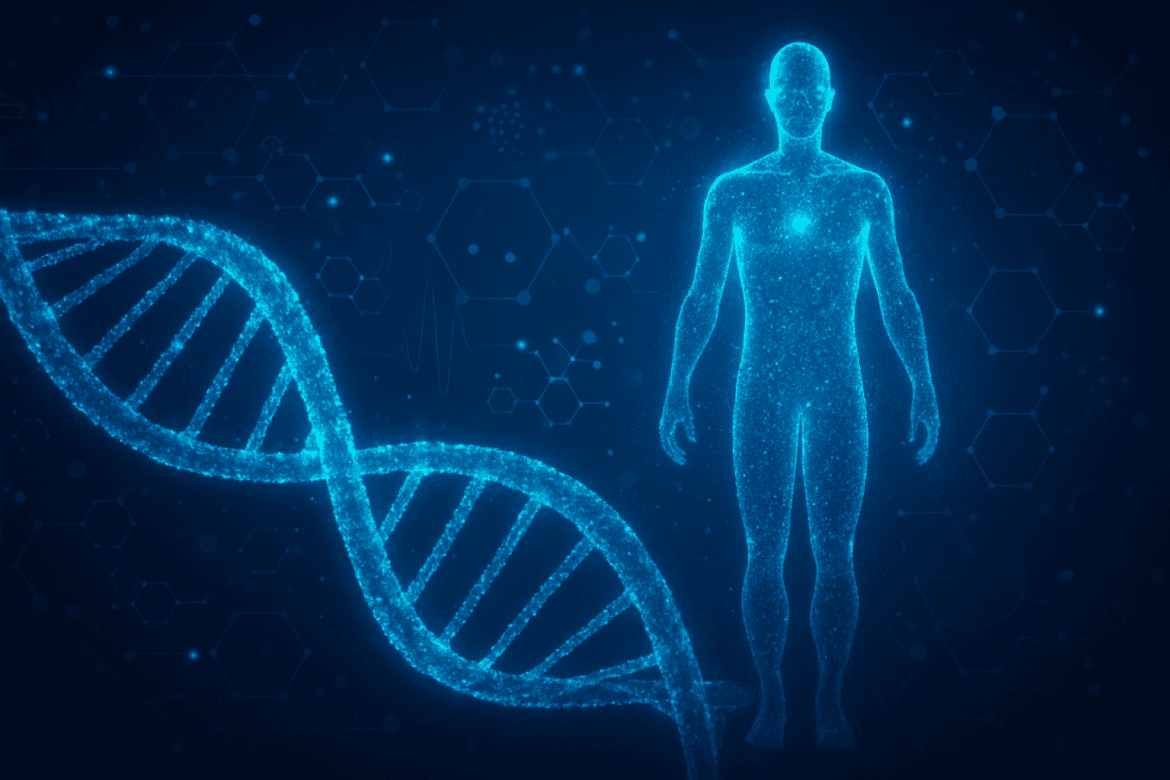A new study reveals how our DNA controls the body’s cannabinoid system — paving the way for personalized medicine
Cannabis doesn’t work the same for everyone. Some people feel calm and relaxed after a few drops of CBD oil. Others need much more to feel any effect — and some feel nothing at all. Why the difference? The answer may lie in our genes.
A large-scale study has revealed that the activity of the endocannabinoid system (ECS) — the biological network responsible for regulating pain, mood, and inflammation — is heavily influenced by individual genetic differences. The findings help explain why people respond so differently to cannabinoids and open the door to personalized cannabis-based therapies, especially in pain and women’s health.
What Is the Endocannabinoid System — and Why It Matters
The ECS is a network of receptors, enzymes, and transport proteins that helps regulate many critical functions in the body: from sleep, appetite, and mood to immune responses and fertility. Its two main endogenous compounds — anandamide (AEA) and 2-AG — are similar in structure and effect to THC and CBD, the active ingredients in cannabis.
How long and how strongly cannabinoids act in the body depends on how efficiently these compounds are synthesized, transported, and broken down — and those processes are controlled by specific genes. For the first time, researchers have mapped the genetic landscape that influences how our ECS behaves.
Genetics at Work
Led by Dr. Keisuke Tanaka, researchers analyzed genetic and tissue data from nearly 32,000 participants via the eQTLGen consortium, 838 tissue donors from the GTEx project, and a proprietary database of 206 endometrial samples. Their focus was on identifying expression quantitative trait loci (eQTL) — DNA variants that regulate how actively ECS-related genes are expressed.
They examined 70 core genes involved in four ECS functions: synthesis, degradation, transport, and reception of cannabinoids.
Key findings include:
- More than 60% of ECS genes showed sensitivity to genetic variation in blood samples.
- Genes responsible for cannabinoid degradation were the most strongly affected. This means that how long cannabinoids remain active in the body is largely determined by your DNA.
- Tissue-specific effects were significant: the skin, lungs, and skeletal muscles were most genetically responsive, while female reproductive tissues were the most stable — likely due to evolutionary protective factors.
Female Reproductive System: A Unique Case
The study holds particular relevance for women’s health, including conditions such as endometriosis and chronic pelvic pain. Researchers discovered that tissues like the uterus, ovaries, and endometrium show less genetic variability in ECS gene activity. This may help explain why cannabis-based treatments are effective for some women, but not for others.
One gene stood out: FABP3, which codes for a transport protein that moves anandamide inside cells. A specific genetic mutation (rs115552871) was found to significantly alter its expression. This could mean that some individuals retain active cannabinoids longer, while others deactivate them rapidly — influencing both sensitivity and duration of effects. FABP3 also binds with THC and CBD, making it a potential biomarker for cannabis responsiveness.
Personalized Medicine Is on the Horizon
This research makes it clear: one-size-fits-all cannabis therapy is not realistic. A person’s genetic makeup plays a crucial role in how they respond to cannabinoids. In the near future, DNA testing could help guide cannabis-based treatment, enabling physicians to:
- Predict who is most likely to benefit;
- Customize dosage and formulation;
- Reduce risks of side effects and inefficacy.
This approach is especially promising for gynecology, where cannabis is increasingly used to manage menstrual and inflammatory pain.
A Call for Genetic Equity
One caveat: most current genomic databases are based on individuals of European ancestry. This limits the applicability of findings across more diverse populations. The researchers emphasize the need for broader data collection that includes multi-ethnic, global representation — to ensure that the benefits of precision medicine reach everyone, everywhere.
Conclusion
The endocannabinoid system is a powerful regulator of health — and genetics significantly shape how it functions. The discovery that over half of ECS genes are affected by genetic variants helps explain why cannabis works differently for different people. The FABP3 gene, in particular, may become a critical predictor of treatment success. Personalized cannabis medicine is no longer a theory — it’s coming into focus.
Also on The Cannex
- Medical Cannabis and Chemotherapy: What the Latest Research Shows
- Can Cannabis Relieve Musculoskeletal Pain? Here’s What Scientists Found
- CBD and Alzheimer’s: Exploring Cannabidiol’s Potential for Memory Support
Frequently Asked Questions (FAQ)
What are cannabinoids?
Cannabinoids are active compounds found in the cannabis plant (such as THC and CBD) and also produced naturally in the human body (endocannabinoids). They interact with receptors to help regulate pain, mood, appetite, inflammation, and other physiological processes.
What is the endocannabinoid system (ECS)?
The ECS is a complex biological system made up of cannabinoid receptors (CB1 and CB2), enzymes, and signaling molecules. It helps maintain homeostasis by regulating pain perception, immune responses, fertility, sleep, and more.
What is personalized medicine?
Personalized medicine, also known as precision medicine, is an approach that tailors treatment to an individual’s genetic profile, lifestyle, and physiology. It aims to deliver the right therapy to the right person at the right time, with better outcomes and fewer side effects.

